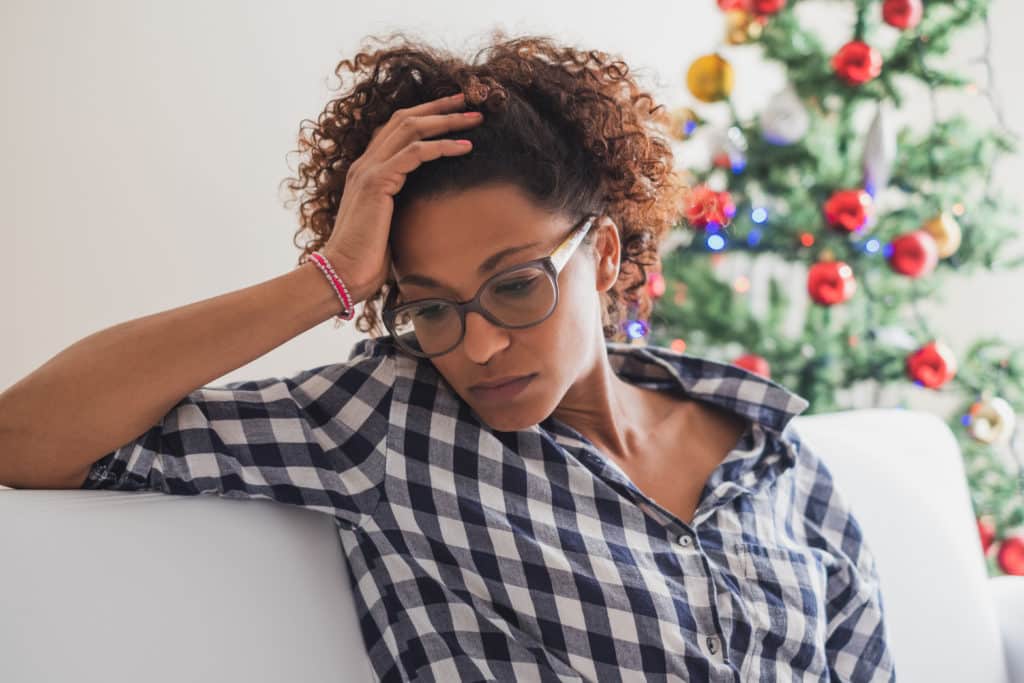This blog post was contributed by CHOICES counselor Alejandra Ortiz.
Our holidays this year look quite different from a year ago. The holiday season is typically when we come together in community to share time with one another. This year, while families cannot physically come together, there are other ways we can cope with the stress and depression that social distancing guidelines may cause.
1. Acknowledge your feelings.
It is okay to take time to cry and express your feelings. Don’t force yourself to feel happy just because it is the holidays. It important for you to share how you feel. You may feel disappointment, sadness, or grief, just to name a few. Reach out to someone who can validate your feelings and help you move through them. If you are feeling lonely or isolated, seek out community, religious or other social events or communities. Try reaching out to a loved one through text or video calls.

2. Keep active.
Physical activity boosts mood both in the short and long term. Go for a 10-15 minute walk to increase your mood and calmness. You can be artistic and bring your camera to take some scenic pictures. Have you visited some of these parks around Houston?
- Memorial Park
- Buffalo Bayou
- Houston Arboretum
- Discovery Green
- Hermann Park
- Gerald Hines Waterwall Park
- Terry Hershey Park
- White Oak Greenway
Remember, with keeping active, it is also important to eat, drink water and sleep well. Make sure you are staying hydrated, eating balanced meals and maintaining a sleeping schedule. Also remember that while alcohol might lift your mood and reduce anxiety at the time, in the long term, alcohol increases the risk of developing mental health issues such as depression and anxiety.
3. Keep your expectations realistic.
Hearing how everyone is spending this holiday season differently this year could lead to potential disappointment and additional stress. A way to eliminate this is by setting clear expectations and boundaries with family and friends. In addition, it is important to respect everyone’s level of comfort during these difficult times.
If you feel you need professional help with managing depression, anxiety or any other mental health issue, please do not hesitate to contact us. Our highly-experienced counselors will confidentially discuss your unique situation and quickly get you the help you need.
